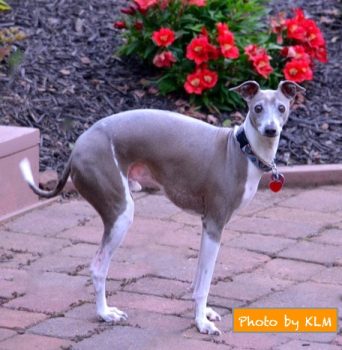Animal Names in Korean Posted by Kyung-Hwa on Oct 18, 2017 in Korean Language, Vocabulary
Are you an animal lover, or do you own a pet? You want to talk about your favorite animal or your adorable pet, but you don’t know how to say your pet’s name in Korean? In this post, you will learn a list of animal names and how to say whether you own a certain pet or not, in the Korean language.
I own a 개 (dog) as a 애완동물 (pet). He is a miniature Italian Greyhound, and his name is 천둥 (Thunder). Although he is small in size, he is fast and makes quite a unique noise when he runs. The noise while he was running somewhat reminded me of the sound of 천둥, and that was how his name became 천둥, about 11 years ago. I have experienced several interesting events relating to him and other animals recently, and, as many people own pets or love animals, I thought the topic on animals would be a great way to initiate small talk in Korean.

What is your favorite 동물 (animal)? The following is a list of names of some house pets and animals in the Korean language.
- 애완동물 (pet)
- 개 (dog)
- 고양이 (cat)
- 토끼 (rabbit)
- 햄스터 (hamster)
- 새 (bird)
- 금붕어 (gold fish)
- 코끼리 (elephant)
- 원숭이 (monkey)
- 기린 (giraffe)
- 돼지 (pig)
- 소 (cow)
- 뱀 (snake)
How would you say whether you own a pet or not? You can use these two Korean words “있어요 (to have/own)” or “없어요 (not to have/own)” to indicate whether you have a pet or not.
ex)
- 저는 애완동물이 있어요. ↔ 저는 애완동물이 없어요.
(I have a pet) (I don’t have a pet.)
- 저는 개가 있어요. ↔ 저는 개가 없어요.
(I have a dog.) (I don’t have a dog.)
- 저는 고양이가 있어요. ↔ 저는 고양이가 없어요.
(I have a cat.) (I don’t have a cat.)
* “저” means “I” in Korean.
* –는 is a topic marker. Please refer to the article, “What Is a Topic Marking Particle?” for further explanations.
* –이 and –가 are subject markers. Please refer to this article, “What Is a Subject Marking Particle?” for further explanations.
Another way to say “I have a dog/cat.” is to use a word “키워요”. The basic verb form of “키워요” is “키우다” and its direct translation is “to raise” in Korean.
- 개(를) 키워요. (raise a dog ⇒ have a dog)
- 고양이(를) 키워요. (raise a cat ⇒ have a cat)
* –을 / –를 are object markers.
A Noun ends in a Consonant + 을 ex) 기린 + 을
A Noun ends in a Vowel + 를 ex) 햄스터 + 를
Are you and I alike? Do you have a 애완동물(pet)? I would love to hear what kind of pet you have in YOUR Korean voice. 저는 개가 있어요. = 저는 개를 키워요. (I have a dog.)
감사합니다! (Thank you!)
***Related Vocabulary***
- 애완동물 (pet)
- 개 (dog)
- 고양이 (cat)
- 토끼 (rabbit)
- 햄스터 (hamster)
- 새 (bird)
- 금붕어 (gold fish)
- 코끼리 (elephant)
- 원숭이 (monkey)
- 기린 (giraffe)
- 돼지 (pig)
- 소 (cow)
- 뱀 (snake)
- 있어요 (to have/own)
- 없어요 (not to have/own)
- 저는 애완동물이 있어요. (I have a pet.)
- 저는 애완동물이 없어요. (I don’t have a pet.)
- 저는 개가 있어요. (I have a dog.)
- 저는 개가 없어요. (I don’t have a dog.)
- 저는 고양이가 있어요. (I have a cat.)
- 저는 고양이가 없어요. (I don’t have a cat.)
- 개(를) 키워요. (raise a dog. ⇒ have a dog.)
- 고양이(를) 키워요. (raise a cat. ⇒ have a cat.)

Build vocabulary, practice pronunciation, and more with Transparent Language Online. Available anytime, anywhere, on any device.



